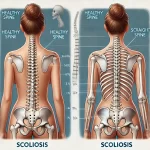Matching donors and recipients is a critical aspect of organ transplantation. This process involves finding a suitable donor for a recipient, considering several factors such as blood type, tissue compatibility, and other medical factors. It is an intricate process that requires the expertise of a team of medical professionals, including surgeons, physicians, and immunologists. The success of a transplant largely depends on how well the donor matches the recipient. In this blog post, we will discuss the importance of matching donors and recipients, the factors that influence the matching process, and how to ensure a successful transplant.
Matching donors and recipients is crucial for several reasons. First, a successful transplant requires a well-matched donor. When a donor matches a recipient, it reduces the risk of rejection. Rejection is a significant concern in organ transplantation and occurs when the recipient’s immune system identifies the transplanted organ as foreign and tries to destroy it. The body’s immune system recognizes the transplant as foreign because it has different proteins, known as antigens, from the recipient’s body. If the antigens on the transplanted organ do not match the recipient’s antigens, the body’s immune system will attack the organ, leading to rejection.
Second, matching donors and recipients ensures that the transplanted organ functions correctly. The transplanted organ must function correctly for the recipient to experience the full benefits of the transplant. The more closely the donor and recipient match, the more likely it is that the organ will function correctly.
Third, matching donors and recipients reduces the likelihood of complications. Complications are common in organ transplantation and can range from minor infections to life-threatening conditions. A well-matched donor can significantly reduce the likelihood of complications, leading to a smoother recovery process for the recipient.
Several factors influence the matching process, and it is essential to understand them. The factors include blood type, tissue compatibility, medical factors, and immunological factors.
Third, matching donors and recipients reduces the likelihood of complications. Complications are common in organ transplantation and can range from minor infections to life-threatening conditions. A well-matched donor can significantly reduce the likelihood of complications, leading to a smoother recovery process for the recipient.
Several factors influence the matching process, and it is essential to understand them. The factors include blood type, tissue compatibility, medical factors, and immunological factors.
Finally, immunological factors play a critical role in the matching process. These factors include the recipient’s current immune system function
